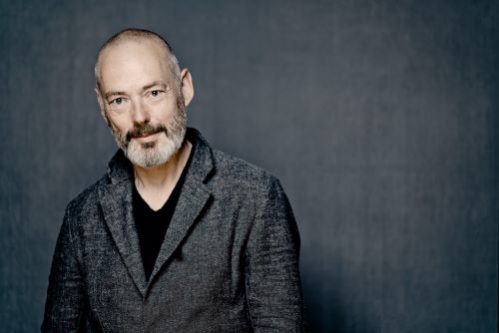 United Kingdom Schubert: Mark Padmore (tenor), Mitsuko Uchida (piano). Review of 26.6.2020 performance live streamed from the Wigmore Hall, London (also broadcast on Radio 3). (CC)
United Kingdom Schubert: Mark Padmore (tenor), Mitsuko Uchida (piano). Review of 26.6.2020 performance live streamed from the Wigmore Hall, London (also broadcast on Radio 3). (CC)

Schubert – Winterreise, D 911
An unseasonal and decidedly out of comfort zone performance of Winterreise (the UK weather scorching), this was part of the Wigmore Hall’s streaming solution to COVID-19. In a recorded introduction, Wigmore Hall Artistic and Executive Director John Gilhooly, OBE, quite rightly talked about the role the arts have to play in the nation’s recovery, their contribution to our emotional maturity, and their ability to empower us, and to remind us that we are not alone.
An empty hall apart from two widely-spaced people greets the viewer (click here), one of those shown was the back of the BBC Radio 3 announcer, Martin Handley; a nostalgic sight for those of us who hold this space so dear to our heart and remember score upon score of memorable, packed-out performances. But we do get a sort of co-presenting aspect, as Mark Padmore himself offers his thoughts on the poet’s journey. In his brief spoken introduction, Padmore extended a line by Brecht: ‘In the dark times, there will also be singing’ which he extended to, ‘in the dark times, there will also be singing about the dark times.’
Song titles were briefly shown for each song, but subtitles/translations were absent. The perfectly weighted, soft chords of the piano opening of ‘Gute Nacht’ could surely only have been so perfectly calibrated by Mitsuko Uchida; Padmore’s line, in response, was equally perfectly enunciated, the listener having no need for text or score. The neighbour note motif of the piano part particularly haunting, Uchida’s tone hardened for Padmore’s ‘Was soll ich länger weilen’ the perfect response to the text. Together, the two spun a spell from first note to last: how bare the textures of ‘Der Wetterfahne’ transported us to a barren netherworld; how ‘Gefor’ne Tränen’ rose to a chilling climax on the line ‘Des ganzen Winters Eis’. The stirrings of ‘Erstarrung’ felt like the most desolate regions of the slow movement of a late Schubert piano sonata before ice-pick staccatos from Uchida and an impassioned ‘Ich will der Boden küssen’ from Padmore spoke volumes as to the protagonist’s mindset. Moments seemed like the bleakest parts of a slow movement from one of the last of Schubert’s piano sonatas, examinations of the psyche that most of us would rather not attempt.
‘Auf dem Flusse’ found ultra-staccatos from Uchida melting into sudden harmonic plateaux, Padmore living the text, living the memory of the first meeting with his beloved. ‘Der Lindenbaum’, with its right-hand piano rustlings, its piano horn calls and its memorably lightened tone from Padmore contained a more anguished section which appeared as an outpouring of what had always existed beneath the surface, while ‘Irrlicht’ showed how poignant the most simple octaves can be.
The whole was a poignant psychodrama, as sweet memories were quickly quelled into their place (‘Frühlingstraum’); the performance of the very next song, ‘Einsamkeit’ was as raw as any I have heard, ‘Die Post’ as emotionally conflicted as any.
While Padmore’s upper register seemed sometimes a little under strain, somehow this added to the piece’s pain; Winterreise cruelly tests the singer’s very lowest area, also. But how daringly close we came to Schoenbergian Sprechstimme with the blanched vocals of ‘Im Dorfe’. And if Uchida seemed somewhat challenged by ‘Mut!’ it was a welcome reminder of the perils of live performance. We closed with the bleakest performance of ‘Der Leiermann’; the camera slowly panned out to reveal the empty first rows of the Wigmore Hall; desolate, forlorn, the performers waiting an age before Padmore shifted hand position to mark the work’s close, followed by the announcer’s voice and the credits.
Special mention for the camera person who managed to find the perfect angle so that we could see Padmore singing and capture Uchida in the background; interesting also to see the pianist as if looking from beyond her left hand, (so, out into the audience, or at least where an audience would usually be). There was no page-turner for Uchida (social distancing, presumably).
If ever there was a piece that should resonate on in the listener’s mind sans applause, this is it. From that perspective, at least, this medium is perfect.
The next series of Wigmore streams starts on 14 September. As a little postscriptum, a reviewer’s life can be an interesting one: in my pile of review discs for one (US) publication sits Benjamin Shorstein’s jazz arrangement of ten of the 24 songs from Winterreise performed by Madre Vaca on the MVR label; quite a way from the original but fascinating nonetheless. A gentle reminder, also, of Padmore’s superb Harmonia Mundi recordings of Winterreise with Paul Lewis on a modern piano (2008: review) and with Kristian Bezuidenhout on a Graf fortepiano (2017: review).
Colin Clarke
For more about the Wigmore Hall’s online content click here.

it was the most haunting performance – alone together on that sad journey.
Attending a live concert at Wigmore Hall is on my bucket list as is visiting London – ah will it ever be!
This came close.
Whereever you are in the world thanks for engaging with S&H and hope you are well!
Wishes often do come true and we hope you get to London and the Wigmore Hall in a healthy and safe future.